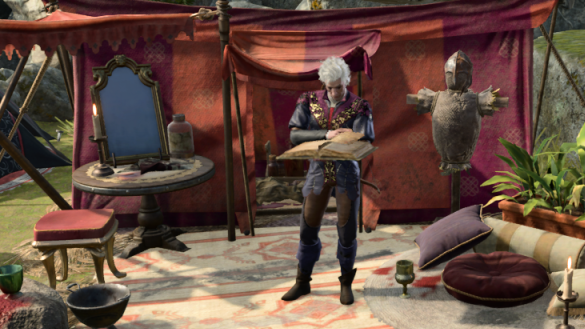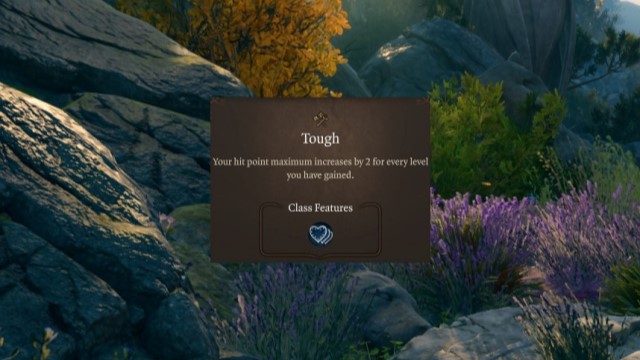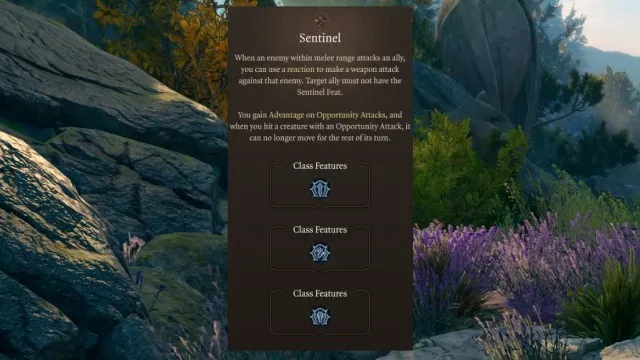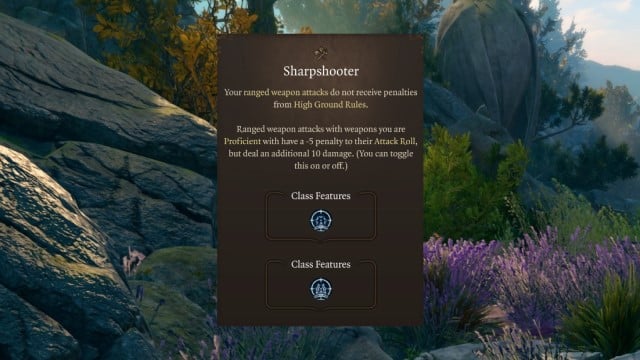Rogues might be one of the hardest classes to optimize in Baldur’s Gate 3 with their limited number of attacks and once-per-turn Sneak Attack. But, there are a handful of feats that make your sneaky stabber shine on the battlefield. Let’s talk about a handful of options you should consider.
The Rogue is one of the few classes in BG3 with extra feat progression—alongside the normal feats at class level four, eight, and 12, the Rogue gets a feat at level 10. This ties them with the Fighter for most feats during a single class’s progression in BG3, and there are a few options that really stand out.
The best feat options for Rogues in BG3, ranked

The best thing you can do for your Rogue is boost their Dexterity to 20 as soon as possible. Rogues live and die by their finesse weapons and ranged attacks, so guaranteeing they land their hits is crucial. Afterwards, it’s reasonable to boost your Rogue’s durability with Constitution boosts, or improve their combat abilities through the variety of potent feats in BG3.
5) Alert

Alert is a feat most notable for its first half—a +5 to initiative. In BG3, initiative is largely based on your modifier, meaning a +5 to initiative is titanic. Add on the bonuses for items like Bhaalist Armor or the Bow of Awareness, and you can almost guarantee you go first during combat situations. Alert also makes you immune to Surprise, which can be nice, especially during your first playthrough.
This works best with the Assassin Rogue. Assassins really want to get to a priority target and land a devastating Sneak Attack during the first turn of a fight. With 20 Dexterity and Alert, this build has a minimum of a +10 to your initiative. Most characters won’t have more than a +5 without the game cheating them earlier in turn order. You can sometimes go before bosses get their “free” summoning turns with Alert and initiative-boosting items, so your Assassin’s damage can climb through the roof. Even on non-assassins, the ability to chunk an important boss before their turn comes up can be a big deal.
However, this can be seen as a bit overkill. Rogues already have stellar initiative, so another +5 will often dominate the turn order by a decent margin. This feat is almost always used for Assassins to overcome the ridiculous initiative numbers given to bosses and give you another round to plink away at health bars. For that reason alone, it’s worth considering.
4) Tough

Tough is a stat-cheating feat (similar to Alert) improving the health of your Rogue by two per level. Improving Constitution by two would improve your health by one per level, so this is like getting a +4 to Constitution through one feat level. Pretty neat, right?
24 health isn’t a ton by endgame, but it will often let your Rogue survive an extra hit or two. That lets them stay online for long enough to get help, drink a potion, or go into hiding and prevent further battle wounds. Tough also works very well with one of the best amulets in the game, the Amulet of Greater Health from the House of Hope. With that Amulet and Tough, your Rogue can walk around with 159 health—Barbarian-level HP. It’ll be hard to put them down with that much health and Uncanny Dodge.
However, this feat isn’t that much better than getting a +2 to Constitution. Tough doesn’t give your Rogue anything for Constitution saving throws, for example, and those can get quite mean later on. And, without the Amulet, your Rogue will probably be sitting around 123 health—very much passable, but far from invincible.
3) Sentinel

Sentinel might seem like an odd feat for a Rogue to take, but it actually provides some neat utility for you. Sentinel grants three distinct benefits—advantage on opportunity attacks, locking an enemy’s movement when you land an opportunity attack, and the ability to attack an enemy when an enemy attacks a nearby ally.
Rogues can use Sentinel to abuse the “once-per-turn” aspect of Sneak Attack. An attack of opportunity can trigger your Sneak Attack if you meet the prerequisites, and Sentinel gives you those immediately. If you decide to dual wield some shortswords, you get to swing them both during an opportunity attack. All of these factors lead to a build where your Rogue is constantly swinging their weapons—something the class struggles with. In addition, you get more chances to swing on foes in melee, giving you more opportunities for a backstab. For this aspect of the build to work, make sure your Rogue has relatively high AC and their melee companions have lower AC, so the AI is more likely to target other party members.
There is a catch, though—BG3 can be a bit finnicky with Sneak Attack and Reactions. If you want to use this strategy, you’ll want to use the automated Sneak Attack actions when possible to prevent wasting Reactions. Still, if you can manage to get the game to work with you, this is an excellent way to finally land some extra opportunity attacks, especially with the Duelist’s Prerogative.
2) Lucky

Lucky is worth considering on every character, but serves a great role for a Rogue. The feat gives you a pool of three rerolls per Long Rest. These rerolls can be used on your own attack rolls, saving throws, or ability checks. They can also be used to force a reroll on an enemy attack roll. Rogues are very reliant on landing one attack per round, so Lucky can be a great way to almost guarantee hits during important situations.
As anyone who plays BG3 knows, low rolls suck. You can very easily go from an easy kill to giving enemies more turns, or fail a critical check in conversation, forcing you to spend an inspiration point or load a previous save. Lucky can be the one thing between your party succeeding at a plan and failing.
Even if your Rogue is multiclassing and can perform multiple attacks per round, having Lucky can prevent a lot of damage. Turning a Paladin boss’s crit into a miss—or even just a normal hit—is a gigantic health save, or rerolling a failed Wisdom save can prevent a Hold Person from landing on you.
The only issue with Lucky is that it’s a reroll, not a guarantee. You only get another chance to succeed or dodge an effect. You can absolutely fudge your Lucky reroll and be in a pickle. But, three more chances to avoid that awkward situation is why Lucky is such a critical feat for tactical classes like Rogues.
1) Sharpshooter

Sharpshooter is, by far, the most important feat a Rogue can take if they want to optimize for damage. Sharpshooter negates penalties for having low ground, but also allows you to toggle on a firing mode which reduces accuracy by five to improve damage by 10. This means your Hand Crossbow goes from a method by which you deliver Sneak Attack to a huge threat by itself.
Sharpshooter is great for a Thief Rogue who is dual wielding Hand Crossbows. With the feat, your Hand Crossbow goes from a 1d6+5 damage attack to 1d6+15. If you decide to multiclass to a class with Extra Attack—like Ranger—this feat alone lets you add up to 40 damage to your standard rounds, provided you land your hits. And this is without magical weapons or armor that can boost your damage.
Rogues struggle to keep up with the damage of other classes, but Sharpshooter can be the difference-maker. If you like Astarion but find he has trouble with round-to-round damage, this feat with two Hand Crossbows can be a big deal. And, during fights against creatures with high AC, you can simply toggle it off and focus on dealing Sneak Attack damage. It’s a win-win.
You’re even better with accuracy in some situations, since you negate low-ground penalties. Sure, this is just a situational +2, but there are quite a few fights in the late-game which give enemies the high ground.
Others Asked
What ability scores are recommended for a Rogue in Baldur’s Gate 3?
The recommended ability scores for a Rogue in Baldur’s Gate 3 are Dexterity (17), Constitution (14), Intelligence (around 10), Wisdom (14), and Charisma (12), while keeping Strength at a lower score of 8.
What are the recommended ability scores for a Rogue in Baldur's Gate 3 according to the game, and why might a player choose to adjust them?
The game recommends the following ability scores for a Rogue: Strength 8, Dexterity 17, Constitution 14, Intelligence 13, Wisdom 13, Charisma 10. A player might choose to adjust them by moving points from Intelligence to Charisma to enhance dialogue interactions and open up more interesting role-playing opportunities.
What makes the Rogue class unique in Baldur's Gate 3 in terms of combat?
Rogues in Baldur's Gate 3 are unique because they don't necessarily need to use melee weapons; being a ranged Rogue can also be useful, making weapon selection potentially complex.















Published: Feb 15, 2024 06:44 pm